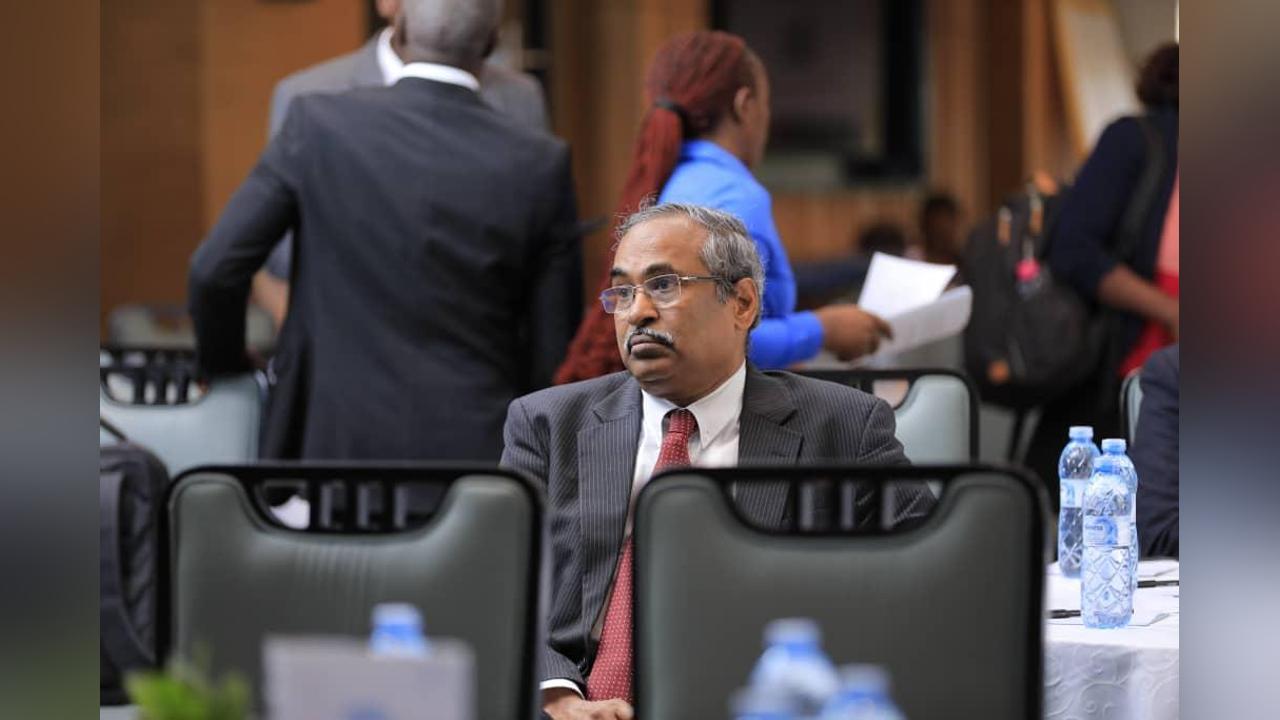Africa-Press – Uganda. Uganda has been commended for its steady progress towards economic transformation after meeting the United Nations criteria for graduation from the Least Developed Country (LDC) status.
This was revealed at a national workshop on Enhancing Trade Resilience of Graduating LDCs held in Kampala, where stakeholders gathered to discuss strategies for sustaining growth and preparing the country for post-LDC challenges.
The workshop highlighted a 15-year assessment (2010–2030) of international trade in LDCs, showing that while global trade has been a driver of growth, many LDCs remain dependent on a narrow range of primary commodities, leaving them vulnerable to external shocks.
For Uganda, primary products—including coffee, tea, fish, cotton, and gold—still dominate the export basket, accounting for more than 75% of export earnings.
Delivering a keynote speech on behalf of his senior Minister, the Minister of State for Industry, David Bahati, said Uganda’s achievement of graduation thresholds alongside Rwanda and Tanzania is a historic milestone for the East African region.
He, however, cautioned that sustaining progress requires building trade resilience and diversifying the economy.
“Trade resilience is crucial in ensuring that Uganda not only meets the graduation criteria but thrives beyond it. This means developing robust supply chains, diversifying exports, building strong infrastructure, and fostering innovative industries,” Bahati noted.
He outlined a 10-Fold Strategy aimed at harnessing value chains and boosting competitiveness. Nine value chains—dairy, beef, fish, coffee, cassava, maize, oil palm, cotton, and tea—have been prioritised for funding, with a strong emphasis on value addition and agro-industrialization.
According to the Minister, the government is taking deliberate steps to reduce reliance on raw exports and improve service delivery.
This includes streamlining business registration through digitalisation, promoting Buy Uganda, Build Uganda (BUBU) initiatives, and expanding trade and investment financing for SMEs and cooperatives.
Authorities are also investing in modern storage and warehousing to minimize post-harvest losses, scaling up industrial hubs and export processing zones, and strengthening logistics infrastructure such as the Gulu Logistics Hub.
Other priorities include the development of cold storage facilities at Entebbe Airport and the expansion of Uganda’s air freight capacity to reach new international markets.
The government is also fast-tracking digital infrastructure to support fintech innovation, e-commerce, and competitiveness in the global digital economy.
Bahati emphasised that Uganda’s export earnings stood at USD 10.6 billion in the last financial year, against imports of USD 13 billion, reflecting gradual progress in closing the trade gap.
Uganda is deepening its participation in regional blocs including the East African Community (EAC), COMESA, and the African Continental Free Trade Area (AfCFTA) to expand access to larger markets.
Beyond Africa, the country is targeting trade expansion into the Gulf, the European Union, China, and West Africa to boost exports of high-value products.
“Regional integration remains a cornerstone of our post-LDC strategy. We are leveraging larger markets to achieve economies of scale and drive industrial growth,” Bahati said.
The Minister also underscored the importance of collaboration with the private sector and development partners. He urged private sector players to invest in productivity, innovation, and standards in order to generate jobs and expand Uganda’s export earnings.
To development partners, he extended appreciation and called for a shift from traditional donor-recipient relationships to more collaborative, mutually beneficial partnerships.
“Our journey out of the LDC category is not just a government success but a national achievement. We must build on these gains to create a resilient, inclusive, and diversified economy that leaves no Ugandan behind,” he noted
The workshop’s findings will directly inform government policy, shaping strategies to strengthen accountability, boost resilience, and ensure that Uganda’s transition out of LDC status translates into tangible benefits for all citizens.
For More News And Analysis About Uganda Follow Africa-Press






